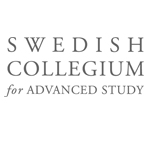Early modern disputations of the Baltic Sea region
In early modern schools public and private disputations were used as a method of teaching and examination. The structure of early modern disputations adhered to conventions that were already established during medieval period when the practice was foremost an oral exercise. From the second half of the 16th century onwards statutes of Protestant universities generally state that all public disputations had to be printed and made publicly available a few days before the disputation took place. As such we have extensive collections of early modern disputations form all over Europe. These short texts (often only two or three sheets in quarto format) were often sent to benefactors or colleagues in other universities, contributing to knowledge transfer. The main body of the texts themselves, which usually comprised of numbered theses, was habitually also accompanied by paratexts – dedicatory letters, occasional poetry, etc. Thus the printed disputations permit to draw conclusions about affiliations and personal attitudes of the participants.
As all disputations had to be approved beforehand, usually by deans of the faculty, these texts reflect the general intellectual atmosphere and the learned consensus in a specific region – in this particular case the focus is on the Baltic Sea region. Baltic Sea region was during early modern period intellectually, confessionally and politically complicated – to say the least. There are old and established universities, with many students and professors, but also universities that were only recently founded e.g. by the Swedish Empire who was in a need for educated officials and clergy for the newly acquired territories on the Baltic coasts. These academic institutions had lively contacts – students often studied in several universities and professors moved between academies. The purpose of the conference in Tartu is to achieve a better picture of the academic institutions of the region and understand the – political, religious, philosophical – integration and differences between these institutions.



